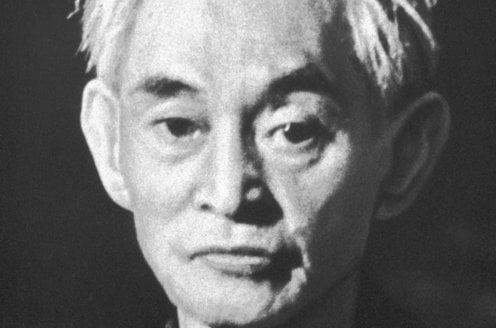Kawabata Yasunari (1889-1972) was the first Japanese writer to win the Nobel Prize in literature. It was awarded in 1968, and coincided with the centennial celebration of the Meiji Restoration.
Japanese authors of the modern period have been well aware of both their own long, rich literary tradition and new ideas about content, form, and style available from the West. Kawabata was no exception; his work has been influenced by both traditions, and is widely read in the West as well as in Japan.
Kawabata is best known in the United States for novels such as Snow Country, A Thousand Cranes, and The Sound of the Mountain, but he also wrote many very short stories — a form he called tanagokoro no shôsetsu ( "palm-of-the-hand stories"). These short narratives are less concerned with plot, or story line, than with depicting momentary experiences and feelings that have wider meanings.
Read the short short story:

No comments:
Post a Comment